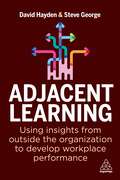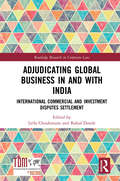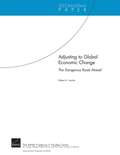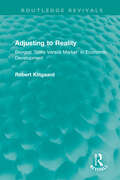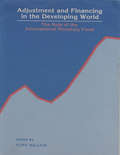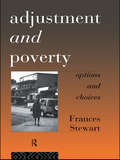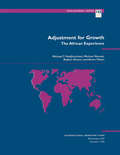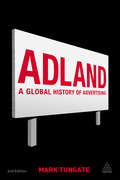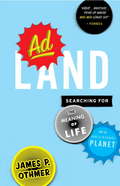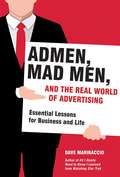- Table View
- List View
Adeo Health Science: Turning a Product into a Brand
by Jill Avery Elizabeth A. KeenanFor decades, American parents were warned to avoid introducing potential allergens to their babies prior to their first birthday. But two influential clinical studies caused the medical establishment to radically reverse their position. Parents were now warned that delaying the introduction of these types of foods increased a baby's risk of food allergies. Adeo Health Science was ready, with patents filed for a baby food that made it simple for parents to introduce allergens. Now, the new company had to turn its product into a brand and map its go-to-market strategy, including creating a compelling value proposition, choosing a path to market that was either direct-to-consumer, through grocery retailers, or via the physician channel, and planning its marketing communications and sales strategy. As a new startup with constrained resources, the company knew its marketing decisions would make or break the new product.
Adhesives, Coatings and Consolidants (Science for Conservators)
by Joyce H. TownsendThis new edition titled Adhesives, Coatings and Consolidants discusses the chemical, physical, and optical properties that influence the selection of adhesives, coatings, and consolidants used in the conservation of cultural heritage objects made from a wide range of materials.The structured text guides readers through the concepts that underpin the selection of the material to use for a given object, when making a join, applying a coating, or consolidating a fragile surface. Widely used conservation materials today are mentioned in the context of the desirable properties that account for their popularity, while examples of those used in the past and likely to be found on previously treated objects are also discussed. This volume is not a recipe book. It is a basic primer and an aid to the assimilation of concepts that will become embedded in decision-making by conservation professionals. Adhesives are discussed first and in the most detail, followed by coatings. The section on consolidants has been extended to reflect developments in treatment and ongoing research into more effective and more sustainable products, such as nanomaterials, that offer new possibilities for the treatment of challenging objects. A list of further reading and some practical exercises are included, along with a comprehensive index.Thoroughly updated to reflect the most recent research, Adhesives, Coatings and Consolidants remains a crucial resource for those beginning a course of study in practical conservation and as a refresher for emerging and mid-career conservators.
Adhunik Karyaliyin Vyavasthapan-1 First Semester FYB.COM New NEP Syllabus - SPPU: आधुनिक कार्यालयीन व्यवस्थापन-1 प्रथम सत्र एफ.वाय.बी.कॉम नवीन एन.इ.पी. अभ्यासक्रम - सावित्रीबाई फुले पुणे यूनिवर्सिटी
by Dr Dnyandev Laxman Nitve Dr Rupali Bipin Sheth Dr Yashodhan Manohar Mithare'आधुनिक कार्यालयीन व्यवस्थापन-1' हे पुस्तक सावित्रीबाई फुले पुणे विद्यापीठाच्या एफ.वाय.बी.कॉम प्रथम सत्राच्या नवीन एन.इ.पी. अभ्यासक्रमानुसार तयार केलेले आहे. या पुस्तकात कार्यालय व्यवस्थापनाच्या विविध पैलूंवर सखोल माहिती दिली आहे. प्रमुख विषयांमध्ये आधुनिक कार्यालयीन सेवा, कार्यालय स्वयंचलन (ऑटोमेशन), कार्यालयीन कार्यपद्धती आणि कार्यालयीन कामाचे मानकीकरण, तसेच कार्यालयीन नियमावली आणि मानक कार्यपद्धती यांचा समावेश आहे. या पुस्तकाचे लेखक डॉ. यशोधन मनोहर मिठारे, डॉ. ज्ञानदेव लक्ष्मण निटवे, आणि डॉ. रुपाली बिपीन शेठ आहेत. पुस्तकाची पहिली आवृत्ती जून 2024 मध्ये प्रकाशित झाली असून, त्यात एकूण 170 पृष्ठे आहेत. पुस्तकातील प्रकरणांमध्ये आधुनिक कार्यालयीन सेवा, कार्यालय स्वयंचलन, कार्यालयीन कार्यपद्धती आणि कार्यालयीन कामाचे मानकीकरण, तसेच कार्यालयीन नियमावली आणि मानक कार्यपद्धती यांचा समावेश आहे.
Adiós a los bancos
by Miguel Fernández Ordóñez¿Qué razón hay para impedir a los ciudadanos el acceso a depósitos públicos y seguros? ¿Qué lleva a los estados a proteger a los bancos privados en vez de fomentar competencia e incentivar la innovación? ¿Dónde estriba la fragilidad de los depósitos en los bancos privados? La gran crisis de 2008 puso de manifiesto la debilidad del dinero usado en los países desarrollados. Millones de trabajadores arrojados al paro y millones de euros dedicados a salvar los bancos son algunos de los daños gigantescos que causan las crisis bancarias. El diagnóstico mayoritario atribuyó la crisis a un mal funcionamiento de los mercados, que llevó a un aumento aún mayor de las regulaciones y de la protección de los bancos. Fernández Ordoñez presenta la visión, diametralmente opuesta, de otros economistas que defienden que el sistema actual de dinero privado es muy frágil y que sus problemas no podrán resolverse con más regulaciones. Estos estudiosos proponen usar el dinero público y seguro que ya existe: los depósitos en los bancos centrales. El tsunami de la digitalización y de las nuevas tecnologías también está exigiendo la liberalización de las actividades bancarias, y hoy se cuestiona con fuerza el sistema actual del dinero y la banca. Este libro, por su sencillez y claridad, ayuda a entender este debate.
Adjacent Learning: Using Insights from Outside the Organization to Develop Workplace Performance
by David Hayden Steve GeorgeUse insights from outside the business to rethink workplace learning in order to drive individual and team performance.Workplaces are not the only setting where employees learn. They are learning constantly in all areas of their lives. The problem is that learning and development (L&D) practitioners don't know how to apply the experiences from outside the traditional business setting to improve employee learning and drive business results. Adjacent Learning is a practical guide which solves this problem. Topics covered include acting, difference and emotion through to language, observation and storytelling and explains how these can be used to deliver more effective workplace learning. There is also expert guidance on the importance of employees understanding the 'why' of learning as well as just the 'how' as well as why it's essential to consider experiences from other countries and industries to create diversity of thought which generates the best possible results. Reflection points and key takeaways are included in every chapter as well as interviews with leading figures in the L&D industry. This practical guide is also full of advice, tips and examples throughout to help L&D professionals design a robust learning strategy that will allow employees and the business to thrive.
Adjudicating Employment Rights
by Susan Corby Pete BurgessAdjudicating Employment Rights compares and analyses institutions for resolving employment rights disputes in ten countries. In addition to detailed individual chapters, the study offers a theoretical perspective and an evaluation of national institutions against key yardsticks.
Adjudicating Global Business in and with India: International Commercial and Investment Disputes Settlement (Routledge Research in Corporate Law)
by Leïla Choukroune and Rahul DondeThis edited collection on international commercial and investment disputes in, and with, India examines past and present landmark legislative and regulatory reforms initiated by the Indian government, including the 2015 new Bilateral Investment Treaty (BIT) model, the 2015 amendments to the 1996 Arbitration Act and the 2013 amendments to Section 135 of the Companies Act on Corporate Social Responsibility (CSR), as well as the most recent amendments to the same. The book also includes recent developments in the dispute resolution arena, regional, and international negotiations involving India, the legal profession’s response to these developments, and civil society’s comments. In addition, it addresses contemporary problems of key importance and at the centre of today’s discussions, from the legitimacy and relevance of Investor–State Dispute Settlement (ISDS) to the denunciation of Bilateral Investment Treaties (BITs), and the role arbitration should play in emerging economies now leaders in world trade. In creating bridges between commercial and investment arbitration, it also renews the conceptual approach to these too often artificially isolated fields of law. The volume provides an accurate and updated account of the many fascinating conceptual and practical evolutions, which already impact the world of international dispute resolution far beyond the borders of India. This unique and exhaustive study will be of great appeal to a vast range of readers from practitioners to academia.
Adjusted Present Value Method for Capital Assets
by Stuart C. Gilson Steven R. FensterThis case provides an explanation of the adjusted present value method for valuing capital assets. The authors believe this approach is generally simple and better for the complicated and changing capital structure found in restructuring.
Adjusting the Levers: Levers of Organization Design at Work
by Robert L. SimonsThis chapter focuses on the important interplay of the four levers of organization design. Examples from three different organizations are used to discuss the effect of each design variable on the others.
Adjusting to Global Economic Change: The Dangerous Road Ahead
by David R. Frelinger James T. Bartis Robert A. LevineThe author combines macroeconomic history since the Great Depression with a brief exposition of economic theory that stems from and explains that history, and explores how that experience may apply to the present economic crisis. He warns that we may again be headed for stagflation and makes suggestions for escaping the worst effects of the crisis.
Adjusting to New Realities: MENA, The Uruguay Round, and the EU-Mediterranean Initiative
by Patricia Alonso-Gamo Khaled Sakr Susan FennellAdjusting to New Realities: MENA, The Uruguay Round, and the EU-Mediterranean Initiative
Adjusting to Reality: Beyond 'State Versus Market' in Economic Development (Routledge Revivals)
by Robert KlitgaardOriginally published in 1991, Robert Klitgaard’s classic book addresses questions of enduring relevance in a lively and insightful way. Bribes, tribes, and markets that fail—these are the realities in many developing countries. The usual strategies for reform—be they capitalist or socialist—have failed to address them effectively. What is to be done when economic reforms leave the poor behind or when when new constitutions and elections are undercut by inefficient bureaucracies, overcentralization, and corruption? And what to do about persistent ethnic inequalities within developing countries? The book provides inspiring examples from around the world, as well as analytical frameworks to guide inclusive policy discussion. Theorists will enjoy the novel uses of industrial economics, the theory of the firm, and the economics of discrimination. The book highlights overlooked causes of underdevelopment: imperfect information and weak information processing in individuals and institutions. In the preface, the former President of Panama, Dr. Nicolás Ardito Barletta, writes: "Poverty, Klitgaard argues, is—and should be—a principal concern of development strategists, but policy makers and analysts will continue to run from pillar to post in their search for a cure unless they can adjust their development schemes to reality…." "The new approach that the author proposes is based on two fundamental principles. One is that the proper choice of economic strategies cannot be determined in the abstract but depends on particular circumstances… The other is that information is at the heart of problems in the real world of the developing countries… Klitgaard offers examples from Bolivia, Brazil, India, Indonesia, Malaysia, Pakistan, Peru, and the Philippines to make his point. "The author suggests creative ways in which the state and citizens themselves can solve their own ‘inevitably unique problems.’ One of the key tasks, in Klitgaard’s view, is to ensure that environments are rich in information. This volume offers a broad framework for policy analysis that moves us closer to intelligent solutions to the real problems of the real poor in the modern world."
Adjustment Policies and Development Strategies in the Arab World
by International Monetary FundThe issues of adjustment and development in the Arab world have acquired urgency following the recent decline in oil prices and the unfavorable developments in the world economy. This seminar was thus timely and important. It provided and excellent opportunity for a number of participants concerned with adjustment and development to exchange views on a variety of important topics.
Adjustment Programs in Africa: The Recent Experience
by Justin B. Zulu Saleh M. Nsouli Nur Calika Lelde SchmitzFinancial report from the IMF
Adjustment and Financing in the Developing World
by Tony KillickThis book, edited by Tony Killick, consists of papers presented at a seminar sponsored jointly by the IMF and the Overseas Development Institute, held in London, England, to discuss the problems facing the developing world in a global environment of high inflation rates and large payments imbalances.
Adjustment and Growth in Sub-Saharan Africa
by Anupam Basu Dhaneshwar Ghura Evangelos A. CalamitsisAfter a prolonged crisis, sub-Saharan African countries have been broadening their reform efforts and enjoying improved economic growth rates. The gains they have made are fragile, however, and to achieve sustained progress they need to strengthen their current reform programs and resolve the serious conflicts threatening the region.
Adjustment and Poverty: Options and Choices (Priorities for Development Economics)
by Frances StewartThe last decade has brought sharp adjustment and rising poverty for most of the developing world. Adjustment and Poverty: Options and Choices examines the major causes and results of this situation, including: *the relationship between structural adjustment and poverty; *the extent to which the situation was brought about by internal and/or external policies; *the impact of the IMF and World Bank on adjusting countries; *government tax and spending policies - with a particular focus on social sector spending; *the possiblity of better policies in the future.
Adjustment for Growth: The African Experience
by International Monetary FundOccasional Paper from the IMF
Adjustment for Growth: The African Experience
by International Monetary FundFinancial report from the IMF
Adjustment under a Currency Peg: Estonia, Latvia and Lithuania during the Global Finanacial Crisis 2008-09
by Catriona Purfield Christoph RosenbergThe paper traces the Baltics' adjustment strategy during the 2008-09 global financial crisis. The abrupt end to the externally-financed domestic demand boom triggered a severe output collapse, bringing per capita income levels back to 2005/06 levels. In response to this shock, the Baltics undertook an internal devaluation that relied on unprecedented fiscal and nominal wage adjustment, steps to preserve financial sector stability as well as complementary efforts to facilitate voluntary private debt restructuring. One-and-half years on, the strategy is making good progress but not yet complete. Confidence in the exchange rate was maintained, the banking system was supported by its parent banks, external imbalances and inflation have largely disappeared, competitiveness is improving, and fiscal deficits are gradually being brought back towards pre-crisis levels. However, amid record levels of unemployment, further reforms are needed to foster a return to more balanced growth, fiscal sustainability, and a healthier banking system
Adjustment, Conditionality, and International Financing
by International Monetary FundThe seminar was the first to be conducted in Spanish under the seminar program for nonofficials recently established by the External Relations Department of the Fund. The seminar program aims at promoting understanding of what the Fund has done and is doing to help members with their balance of payments problems. The seminars are also designed to improve the Fund's knowledge of thinginh in academic, and other circles concerning the isues with which the Fund deals in order to find ways of enhancing the effectiveness of the Fund's work.
Adjustments and Tradeoffs: More Fine Tuning
by Harvard Business Review PressIt's not uncommon to recognize discrepancies between the objectives stated in the project charter and what the project is actually delivering. When addressing these gaps, decision makers must decide which trade-offs to focus on. This chapter focuses on how to facilitate the conversation, making room for better judgments about what is required to get the job done.
Adland
by Mark TungateAdland is a ground-breaking examination of modern advertising, from its early origins, to the evolution of the current advertising landscape. Bestselling author and journalist Mark Tungate examines key developments in advertising, from copy adverts, radio and television, to the opportunities afforded by the explosion of digital media. Adland focuses on key players in the industry and features exclusive interviews with leading names in advertising today, including Jean-Marie Dru, Sir Alan Parker, John Hegarty and Sir Martin Sorrell, as well as industry luminaries from the 20th Century such as Phil Dusenberry and George Lois. Exploring the roots of the advertising industry in New York and London, and going on to cover the emerging markets of Eastern Europe, Asia and Latin America, Adland offers a comprehensive examination of a global industry and suggests ways in which it is likely to develop in the future.
Adland: Searching for the Meaning of Life on a Branded Planet
by James P. OthmerSomewhere between The Tipping Point and Mad Men lies Adland. Adland is the wickedly funny, compelling personal chronicle of the rise and fall of a modern-day ad man; a riveting insider's look at the astonishing transformation taking place in advertising's hottest idea factories; and an introduction to the people whose job is to know what makes us tick, what makes us lean in, what we think we need and don't know that we want. Amidst the tales of lavish shoots, agencies on the brink, and pampered mega-brands Adland is also a snapshot of how we live our lives on this earth at this particular moment . . . thirty seconds at a time.
Admen, Mad Men, and the Real World of Advertising: Essential Lessons for Business and Life
by Dave MarinaccioA bestselling author and advertising veteran shares a life’s lessons from the ad trade.Dave Marinaccio, cofounder and the creative director of LMO Advertising, is a veteran of the industry who, as a young man starting out, studied stand-up at Second City in Chicago. He later wrote an international bestseller, All I Really Need to Know I Learned from Watching Star Trek. His equally entertaining new book takes us inside the world of advertising, offering stories and observations from his three decades at some of America's best-known agencies, working with clients from Pizza Hut to the Holocaust Museum. In short, punchy chapters, Dave pulls back the curtain and shares his insights on how marketing decisions are made and other lessons. His topics range from logos, the big idea, and selling perfume to how we undervalue our gifts, to do-overs, celebrities, and "meetingsmanship." And more than a few lessons turn out to be apt not just for business but for our stressed-out lives.Admen, Mad Men, and the Real World of Advertising is written to be easily digestible by interns, CEOS, or anyone who has ever watched a television commercial or clicked on a banner ad. Irreverent, packed with useful information, and unflinchingly honest, it is a serious business book by a seriously funny man and a must for anyone who lives, works, or plays in today's commercial culture.



